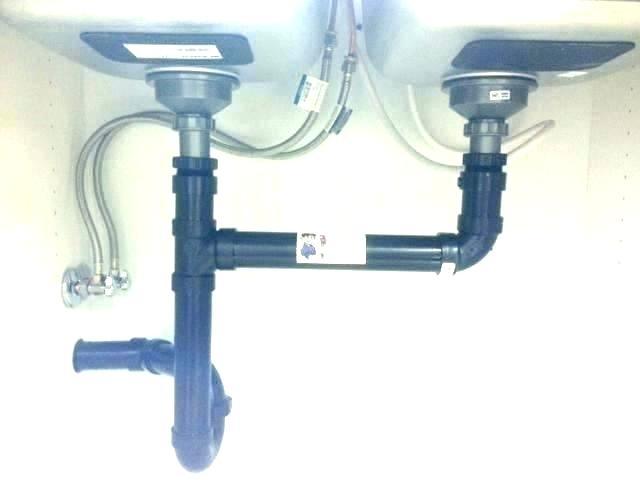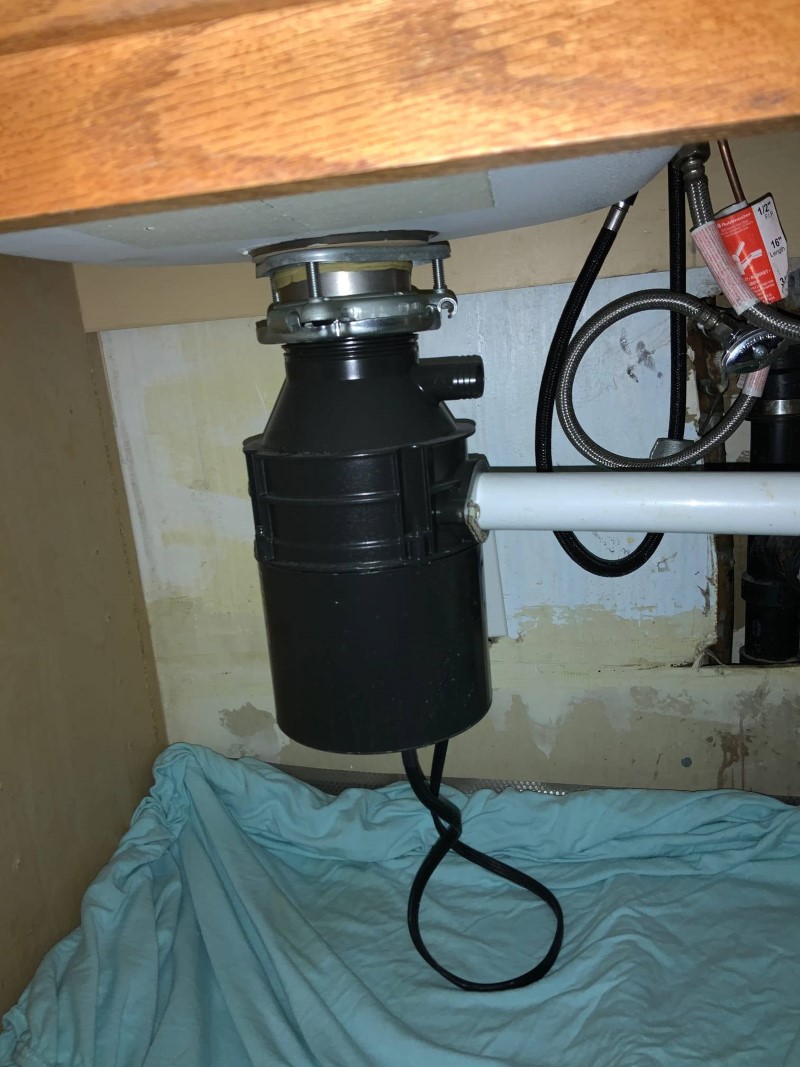What're your thoughts and feelings about Garbage Disposal Leaking From Bottom?

Waste disposal unit are vital kitchen home appliances that help in throwing away food waste efficiently. Nonetheless, a leaking waste disposal unit can be a frustrating and messy issue to take care of. Thankfully, many leakages can be dealt with conveniently with a couple of simple steps. In this write-up, we will review exactly how to take care of a dripping garbage disposal efficiently.
Introduction
Garbage disposals are mounted under kitchen sinks and are made to shred food waste right into smaller pieces, permitting it to go through the plumbing system easily. While these devices are generally reliable, leakages can take place with time as a result of wear and tear, loosened connections, or damage to the device.
Step-by-Step Guide to Taking Care Of a Leaking Waste Disposal Unit
Turn Off the Power
Before trying any type of repair work, make sure that the power to the waste disposal unit system is turned off to avoid the risk of electric shock.
Locate the Leakage
Identify the specific place of the leakage and establish the reason
Tighten up Connections
Utilize a wrench to tighten up any kind of loose connections in between the disposal device and the pipes system.
Change Seals or Gaskets
If the leakage is due to worn seals or gaskets, eliminate the old components and replace them with new ones.
Patching Fractures or Openings
For splits or openings in the disposal device, use epoxy or an ideal patching product to seal the damaged area.
Identifying the Source of the Leakage
Before trying to repair a dripping garbage disposal, it is essential to determine the resource of the leak. This can typically be done with aesthetic evaluation or by performing easy examinations.
Visual Inspection
Examine the waste disposal unit unit thoroughly for any kind of signs of water leakage. Pay attention to areas around seals, gaskets, and connection points.
Checking for Leaks
One method to check for leaks is by running water via the disposal system and looking for any noticeable indications of leak.
Usual Causes of Leaks in Rubbish Disposals
Worn Seals and Gaskets
Seals and gaskets play an essential function in stopping water from dripping out of the waste disposal unit. Over time, these components can weaken, resulting in leaks around the disposal device.
Loose Connections
The connections between the waste disposal unit and the pipes system can end up being loosened gradually, triggering water to leak out throughout operation.
Cracks or Openings in the Disposal System
Physical damages to the garbage disposal, such as fractures or holes in the real estate, can additionally lead to leaks.
Tools and Materials Needed for Dealing With a Dripping Waste Disposal Unit
Prior to starting the repair procedure, gather the necessary devices and materials, consisting of a screwdriver, adjustable wrench, plumbing technician's putty, replacement seals or gaskets, and epoxy or patching material for repairing fractures or openings.
Evaluating the Waste Disposal Unit After Repair Work
As soon as the repair service is complete, check the garbage disposal by running water via it to guarantee that the leak has been resolved.
Preventive Upkeep Tips to Avoid Future Leakages
To stop future leaks, it is vital to perform routine upkeep on your garbage disposal. This consists of maintaining it tidy, preventing placing non-food things or difficult things down the disposal, and regularly looking for leaks or other concerns.
Conclusion
To conclude, dealing with a leaking waste disposal unit is a reasonably simple procedure that can be completed with fundamental devices and materials. By complying with the actions outlined in this short article and exercising preventative maintenance, you can keep your waste disposal unit in good working problem and avoid expensive repair work in the future.
HERE’S HOW TO FIX YOUR GARBAGE DISPOSAL
WHAT TO DO IF SOMETHING IS STUCK IN YOUR GARBAGE DISPOSAL
If the impeller won’t turn, there’s probably something stuck in the disposal. It could be a steak bone or peach pit, although plumbers report pulling all sorts of inappropriate objects out of disposals, such as bottle caps or aluminum foil. Make sure power to the disposal is off, and look inside to see if you can see the source of the jam.
Never stick your fingers in a disposal. Pull out anything you see with tongs or pliers.
If the disposal still won’t work, it may be time to call a plumber or consider buying a new disposal. GEM Plumbing & Heating is here for all of your garbage disposal needs.
WHAT TO DO IF YOUR GARBAGE DISPOSAL DRAIN IS CLOGGED
Take everything out from underneath your sink and put a bucket or other container under your disposal to catch any water that drains out. Disconnect your disposal from the power supply. If it’s plugged into a wall outlet, unplug it. If it’s hardwired into an electrical box, go to the electrical panel and turn off the breaker for the disposal. Pour ¼ cup of baking soda into the drain, followed by ½ cup of white vinegar. Give the solution a few minutes to fizz and do its work. Look into the disposal with a flashlight to see if you can see an object that might be causing the clog. If you see it, remove it using tongs or pliers. MORE TIPS ON DEALING WITH A CLOGGED GARBAGE DISPOSAL
Never use drain cleaner in a garbage disposal. It can damage the plastic parts inside the disposal. You can also be splashed with the caustic liquid while working to clear the clog. Beware! Never stick your fingers into a garbage disposal. Trust us — not a good idea. In many instances, your dishwasher drains through your garbage disposal. This allows the disposal to grind any large food particles that may be drained out of your dishwasher. There are some jurisdictions, however, where the plumbing code prohibits such a connection. WHAT TO DO WHEN YOUR DISHWASHER DRAINS THROUGH THE DISPOSAL
Run some water in the sink so your plunger has at least a ½-inch of water to create a seal and plunge vigorously up and down several times. You may need to repeat this several times. Run hot water down the drain to clear any residue that remains.

As a fervent reader about How to fix a pretty consistent leak from my garbage disposal, I thought sharing that piece of content was smart. Do you know another individual who is excited about the subject? Why not share it. Thanks so much for taking the time to read it.
Schedule Your Job Now